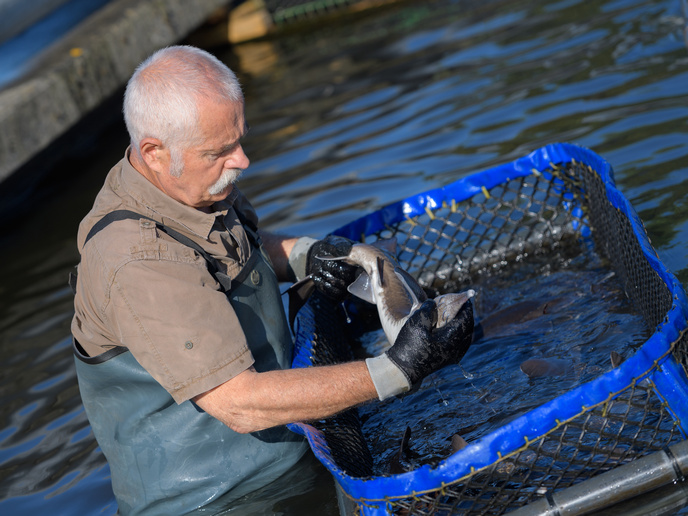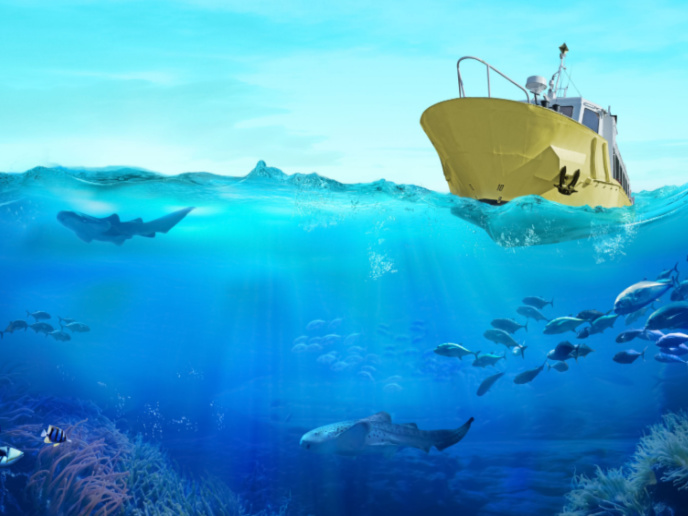Deep tech enables fish farmers to protect stock
Salmon farming is a global industry worth around EUR 15 billion, with European production accounting for 64.5 % of total production. A major threat to these commercial operations is the sea louse – a tiny crustacean that can produce catastrophic consequences. These creatures have evolved to survive against medicines, and can rapidly become a problem in a matter of days to weeks. Infected fish are stressed, and wounds can lead to secondary infections, affecting fish health and welfare, and ultimately affecting sale prices. “Salmon farmers use different tools, treatments and operational practices to reduce lice at their sites,” explains Game Changer project coordinator Margaret Rae, managing director of Konree Innovation in Ireland. “However, no one method or combination of methods can reliably manage and control sea lice numbers to date. As a result, around 15-25 % of production can be lost because of lice infestations.”
Applying AI, machine learning to fish farming
Established in 2021, Irish start-up Konree Innovation sought to apply deep-tech solutions to fish pest control. “We are currently on the patenting route, so I can only say a little about our actual technology,” says Rae. “What I can say is that our solution takes a different approach to current treatments, by aiming to tackle the biology of the problem.” The idea is that through using artificial intelligence (AI) and machine learning, fish farmers will be able to outsmart the sea louse’s biological strategy for infestation. This will help farmers to keep ahead of any threats, and implement the most effective preventive measures. “We’re a woman-led company, so this Women TechEU programme was a great fit for us,” continues Rae. “The Game Changer project provided a tremendous boost, as it meant we were able to advance our technology, build customer traction and build the business.” The project also enabled the team to look at different ways of deploying its deep-tech solution, and developing its intellectual property strategy. “It also enabled us to travel to meet salmon producers, and gave us more credibility in the industry and with investors.”
Building investor credibility for tech solution
Advances made through the project have helped the business to attract and secure pre-seed investment from Enterprise Ireland, for the maximum amount possible of EUR 100 000. “This is early proof that we are successfully building investor credibility,” remarks Rae. “This new investment has enabled us to hire two full-time senior R&D biologists, which will help us to propel the development of our technology further.” The start-up is actively reaching out to more investors, and recently received news that it was successful in getting into the SynergistEIC Accelerator. This EU-funded programme aims to boost green tech start-ups, and help them to bring innovations to market.
Towards sustainable food production
Rae and her colleagues believe that this will be another stepping stone towards commercialisation, and the effective removal of sea lice from salmon aquaculture. Fish is a nutritious, healthy alternative to other forms of animal protein, and fish farming has a far lower carbon footprint than, say, cattle farming. “Salmon production is a young industry that is adept at implementing highly advanced technologies,” she notes. “If we can remove the threat of sea lice, then these businesses can quickly scale up and help in the transition towards more sustainable methods of food production.”
Keywords
Game Changer, aquaculture, deep tech, fish, salmon, sea lice, AI, machine learning







